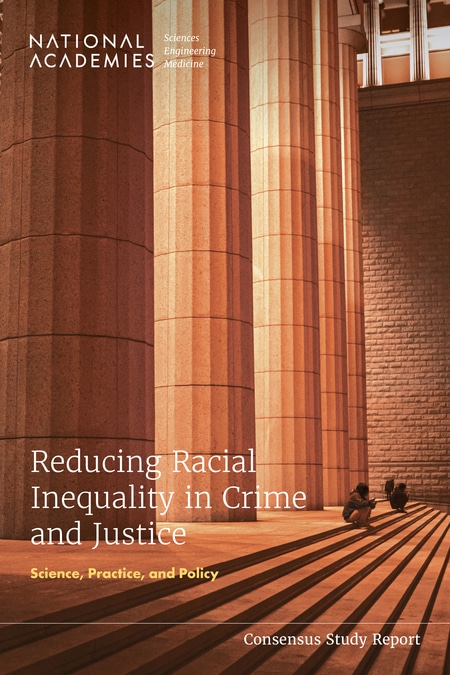Reducing Racial Inequality in Crime and Justice
February 28, 2023 @ 11:30 am
Location: Bell Hall, 5th Floor, Belfer Building, Harvard Kennedy School
The United States continues to grapple with creating an accurate, national picture of racial inequality in crime and justice. Criminal justice reform requires policies that interrogate and solve for the historical legacy of racial exclusion and structural inequalities.
The IARA Project hosted a discussion with Bruce Western, Bryce Professor of Sociology and Social Justice and Director of the Justice Lab at Columbia University; and Khalil Gibran Muhammad, Ford Foundation Professor of History, Race and Public Policy at Harvard Kennedy School and Director of the Institutional Antiracism and Accountability Project; co-chairs of the recent National Academies of Science publication on “Reducing Racial Inequity in Crime and Justice: Science, Practice, and Policy.” Sandra Susan Smith, Daniel and Florence Guggenheim Professor of Criminal Justice and Faculty Director of the Program in Criminal Justice Policy and Management, provided an introduction.
This event is hosted by the Institutional Antiracism and Accountability Project (IARA) at the Ash Center for Democratic Governance and Innovation and the Program in Criminal Justice Policy and Management at the Malcom Wiener Center for Social Policy and co-sponsored by the HKS Black Student Union. It is part of the IARA Changemaker Series Lunch Seminar.
Tune into an audio recording of the event
View presentation slides
Abstract
The history of the U.S. criminal justice system is marked by racial inequality and sustained by present day policy. Large racial and ethnic disparities exist across the several stages of criminal legal processing, including in arrests, pre-trial detention, and sentencing and incarceration, among others, with Black, Latino, and Native Americans experiencing worse outcomes. The historical legacy of racial exclusion and structural inequalities form the social context for racial inequalities in crime and criminal justice. Racial inequality can drive disparities in crime, victimization, and system involvement.
Reducing Racial Inequality in Crime and Justice: Science, Practice, and Policy synthesizes the evidence on community-based solutions, noncriminal policy interventions, and criminal justice reforms, charting a path toward the reduction of racial inequalities by minimizing harm in ways that also improve community safety. Reversing the effects of structural racism and severing the close connections between racial inequality, criminal harms such as violence, and criminal justice involvement will involve fostering local innovation and evaluation and coordinating local initiatives with state and federal leadership.
This report also highlights the challenge of creating an accurate, national picture of racial inequality in crime and justice: there is a lack of consistent, reliable data, as well as data transparency and accountability. While the available data points toward trends that Black, Latino, and Native American individuals are overrepresented in the criminal justice system and given more severe punishments compared to White individuals, opportunities for improving research should be explored to better inform decision-making.



